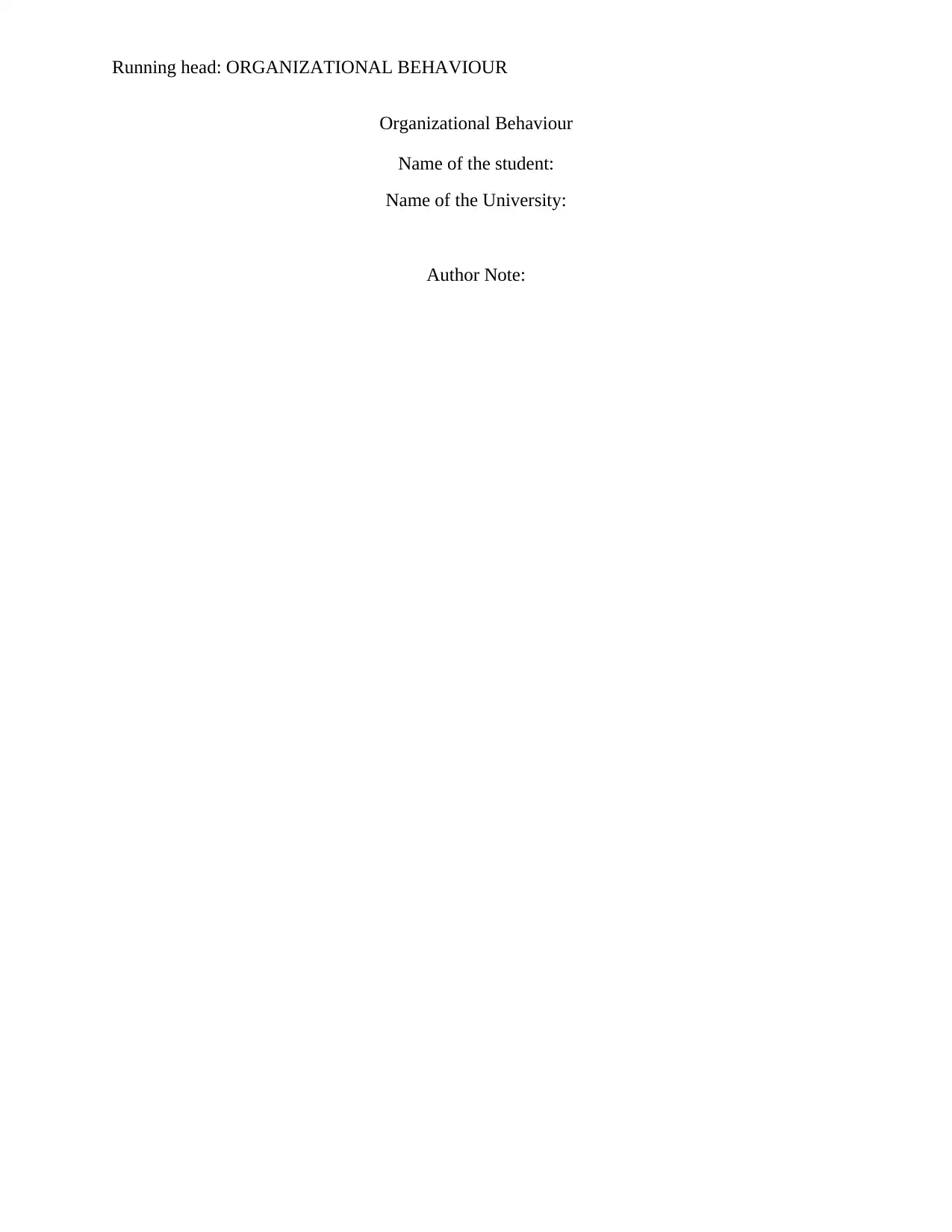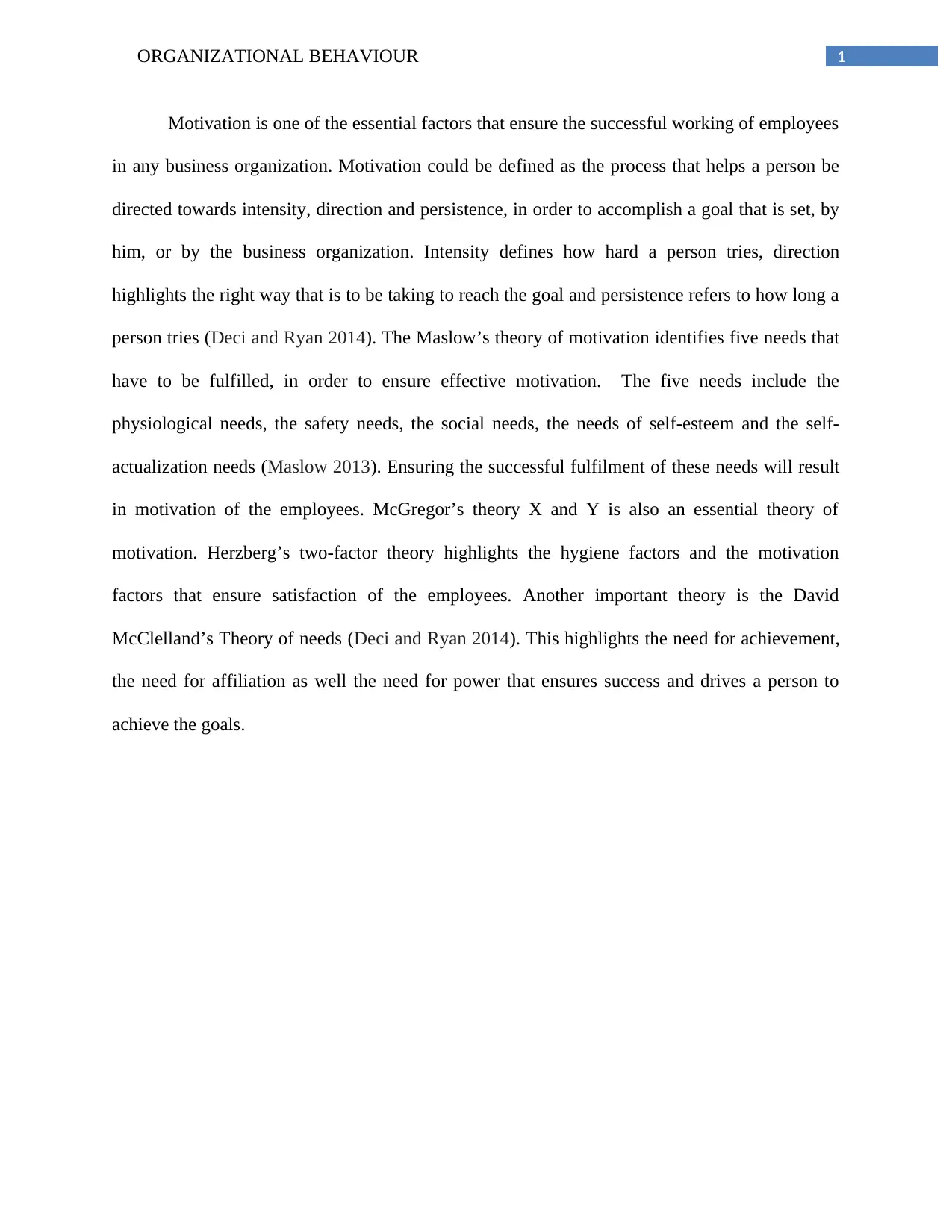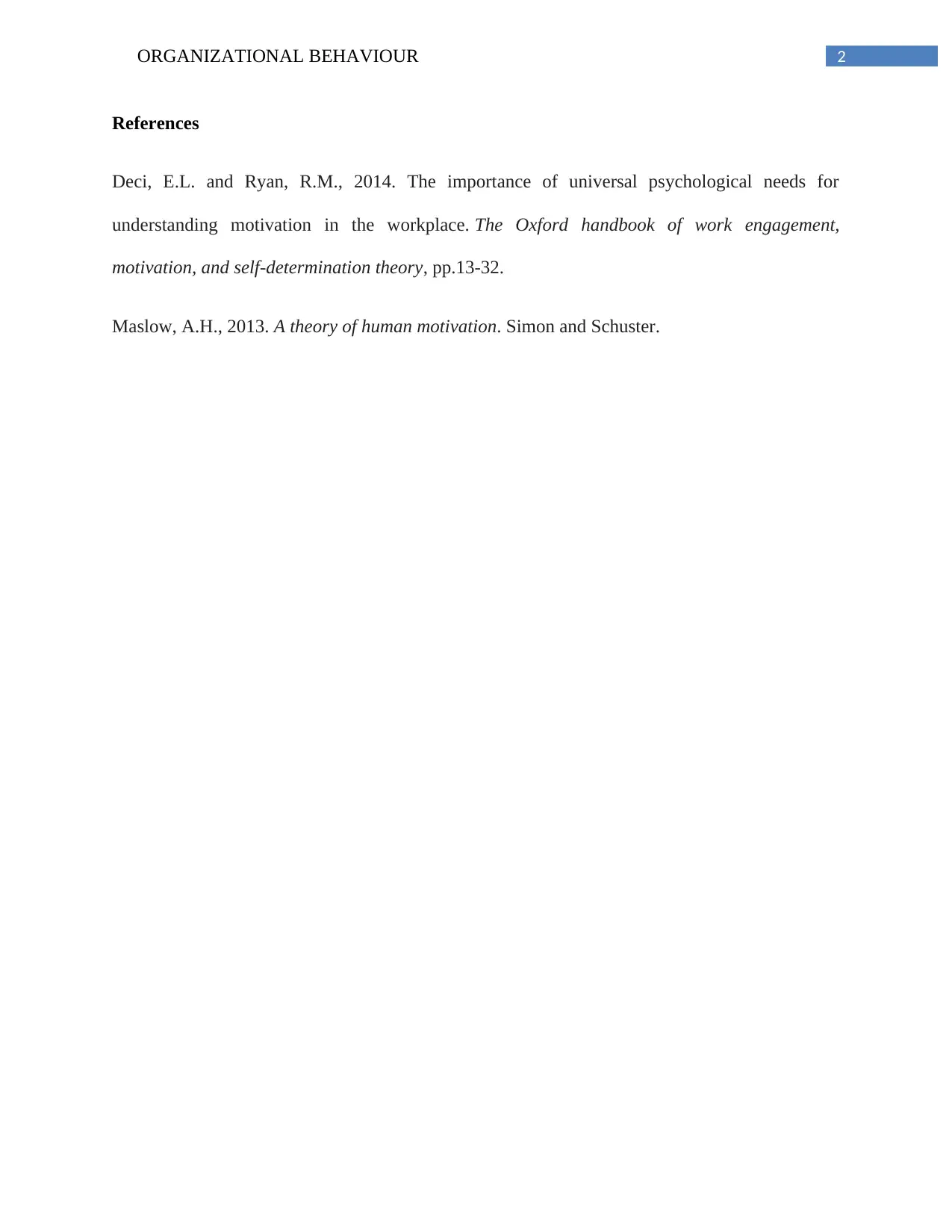Organizational Behaviour: Motivation Theory and Application Report
VerifiedAdded on 2020/03/16
|3
|324
|51
Report
AI Summary
This report examines the concept of motivation within organizational behaviour. It delves into the theories of Maslow, McGregor, and Herzberg, highlighting how these frameworks can be applied to understand and enhance employee motivation. The report also briefly mentions the significance of David McClelland's theory of needs, including the need for achievement, affiliation, and power in driving individual and organizational success. The core focus remains on how these motivational theories contribute to the overall understanding of workplace dynamics and employee engagement. The assignment provides an overview of the theories and their practical implications for managers and organizations aiming to improve performance and job satisfaction.
1 out of 3









![[object Object]](/_next/static/media/star-bottom.7253800d.svg)